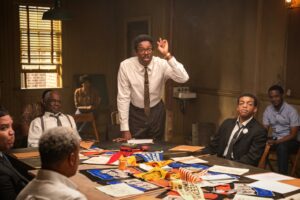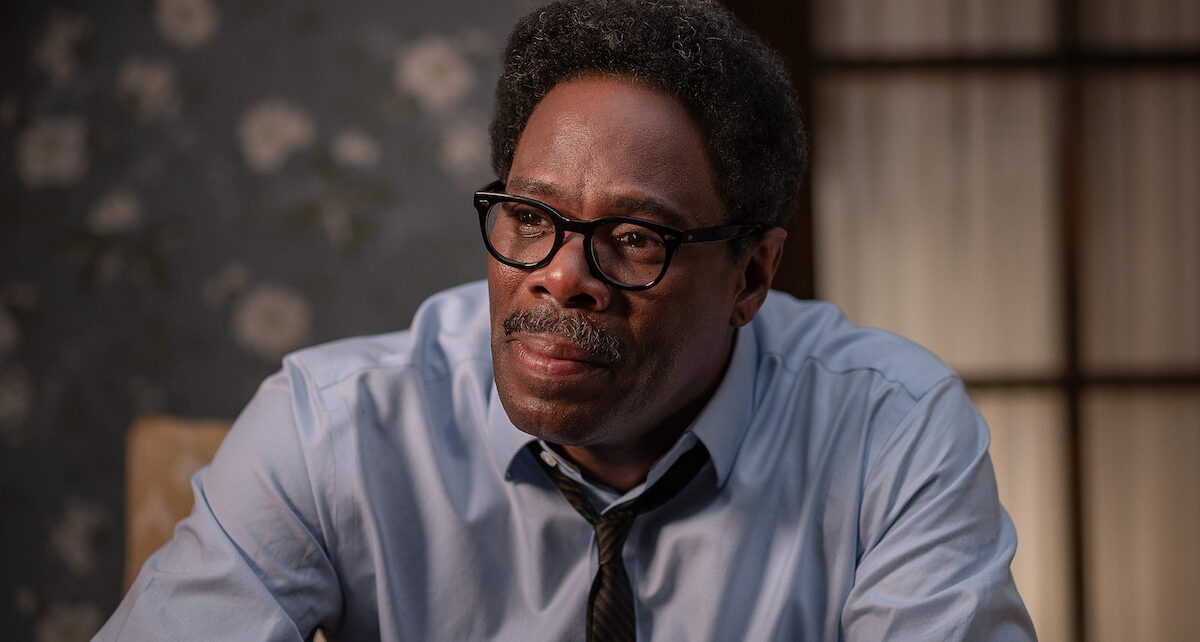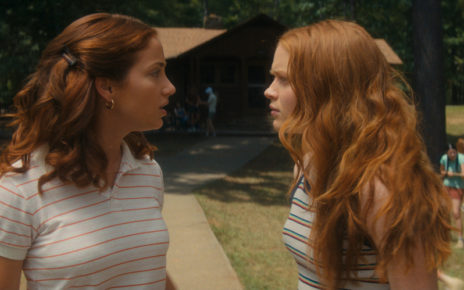History wasn’t kind to Bayard Rustin, so we have to compensate a little. It is no surprise history wasn’t kind to the man—he checked off boxes like he was the subject of Bigot Bingo. He was black. And gay. And out. And had a police record (for being gay). He was an outspoken Civil Rights advocate. He had a high-pitched voice. He confronted authority. He slept around. He was a member of the Communist Party. He wasn’t even Southern (Rustin was born and raised in Pennsylvania). He was a Quaker. There wasn’t an American alive in 1960 who would be comfortable with the entire package.
And, yet, as the film opens, Bayard Rustin (Colman Domingo) is getting a young Martin Luther King, Jr. (Aml Ameen) to become more public with his activism. This is to be a classic love/hate relationship as MLK, Jr. served as key figure in Rustin’s biggest win and biggest loss of the 1960s.
One gets the feeling that Rustin spent every day of the 1960s, in one way or another, fighting for Civil Rights and/or picking up strange men. The film tells us Rustin came home to Tom (Gus Halper), a young low-level white activist, but he shared a bed with other men, often. Of course, in this century it wouldn’t be such a big deal, but gay bars were illegal at the time.
The characterization of this political activist as homosexual and promiscuous represents both the most important part of the film while being worthless prattle at the same time. By the early 1960s, Bayard Rustin hadn’t accomplished much, so while his antics and demeanor are somewhat colorful, we are left wondering, “Why are we following this guy?” The movie answers, “August 28, 1963, that’s why.” “Oh.”
For the Civil Rights History challenged, Bayard Rustin is best known for organizing the peace march on Washington on that particular date. At 100,000 strong, it promised to be the most attended peace march in world history up to that point … and it was a logistical nightmare to organize. Rustin had to get all the various social justice groups on board (the NAACP initially refused) as well as appeasing churches and minority leadership as well as appeasing the FBI, the CIA, various policing, mayoral, and sanitation people in the round. Yes, Rustin could say all the right things to all the right people and still lose out because of a lack of port-a-pottys. Ain’t that the shit?
world history up to that point … and it was a logistical nightmare to organize. Rustin had to get all the various social justice groups on board (the NAACP initially refused) as well as appeasing churches and minority leadership as well as appeasing the FBI, the CIA, various policing, mayoral, and sanitation people in the round. Yes, Rustin could say all the right things to all the right people and still lose out because of a lack of port-a-pottys. Ain’t that the shit?
And, of course, being Bayard Rustin, he wasn’t always saying all the right things to all the right people, and this is the part where being an uncloseted black man with a police record in the 1960s did you no favors. [Yeah, like it works wonders for you in 2024.]
Rustin suffers from a glut of “yeah, we knew that.” No, we the audience did not know much about Bayard Rustin, but we knew about the peace march on Washington in August of 1963. We know it because the march is best known for being the venue of MLK’s “I Have a Dream” speech – which, sadly, cannot be emulated without losing significant integrity. But even if we knew nothing of the march or the speech, we’d still know he pulled it off because, quite frankly, why else did this picture get made? The man’s life was not a roadmap of achievement; in fact, quite the opposite was true. Hence, what this film really boils down to is: how much do we like Rustin? And the answer is: *shrug* I like the performance, but as I said in the first paragraph, this guy couldn’t help but alienating his audience one way or another. At this, well, hey, Colman Domingo, good performance because you clearly captured well this previously and justifiably unknown historical figure.
There once was a rabble-rouser named Rustin
Who always had trouble adjustin’
For he’d spend every day
Being black, loud, and gay
If trouble wasn’t there, it got bussed in
Rated PG-13, 106 Minutes
Director: George C. Wolfe
Writer: Julian Breece, Dustin Lance Black
Genre: There was also this guy
Type of being most likely to enjoy this film: Anybody who has ever tried to organize something big
Type of being least likely to enjoy this film: Our hero will set off many a bigot-o-meter



